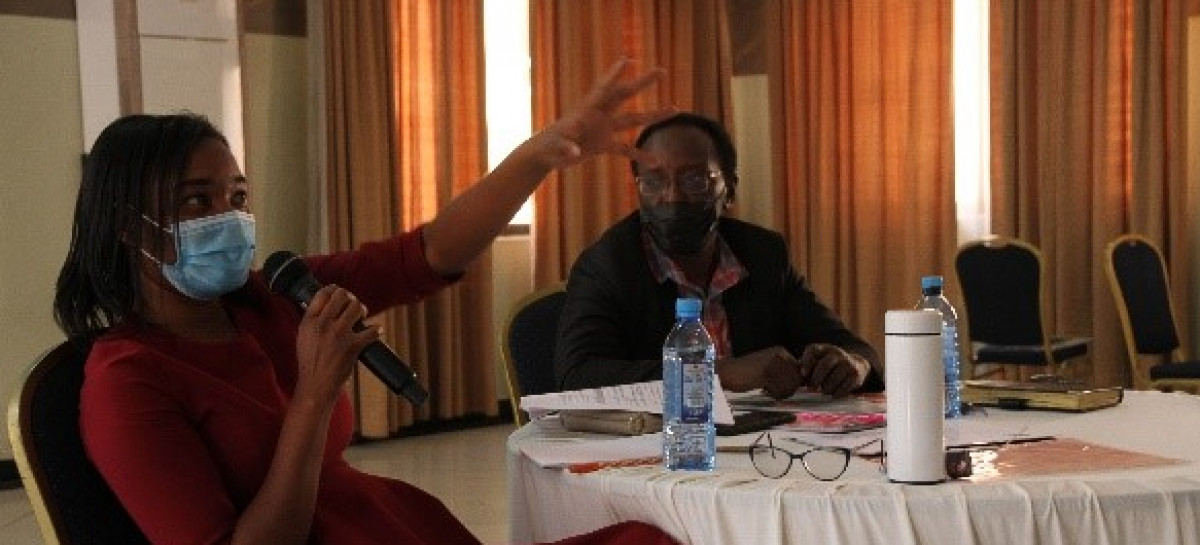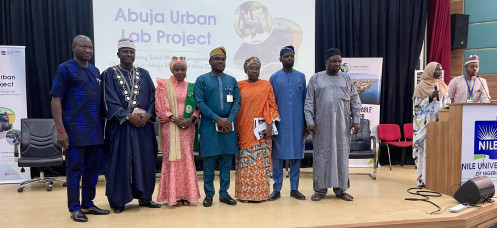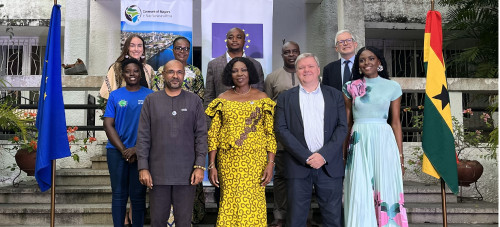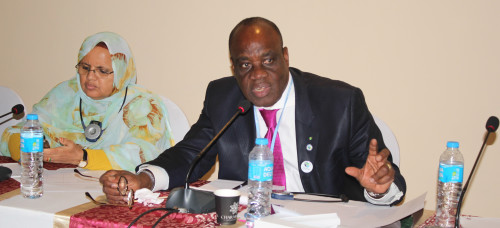Setting ambitious targets for a climate resilient future in Nakuru county, Kenya
Published: 8 Sep 2021

“So far, most climate change initiatives have been top-down. However, this county is looking at a bottom-up approach; the pyramid is inverted to put the people who are suffering from the effects of climate change at the center.” - Mr. Kiogora Murithi of the County Government of Nakuru
CoM SSA signatory Nakuru County in Kenya is gearing up to commit itself to ambitious targets in line with the Nationally Determined Contribution (NDC) of Kenya.
To translate their political commitment into practical measures, CoM SSA signatories commit to develop and implement a strategic and operational document called the Sustainable Energy Access and Climate Action Plan (SEACAP). They are encouraged to define a long-term vision and set ambitious targets towards a sustainable future based on the pillars of climate change mitigation, adaptation, and sustainable, affordable, and secure access to energy.
In June 2021, Nakuru County, with support from CoM SSA partners GIZ and ICLEI Africa, organised a climate change adaptation vision- and target- setting workshop. The objectives of the workshop were to establish an overarching adaptation vision for Nakuru County to guide the strategic direction of adaptation interventions; and to establish adaptation targets for sectors identified as being the most vulnerable to current and projected impacts of climate change in the County.
A range of participants attended, including representatives from the County’s departments of health, resource mobilisation, water and sewerage, tourism, roads, transport, and public work, as well as development agencies and scholars. Through a process of discussion and co-development, participants developed an overarching adaptation vision for the County as well as proposed SMART (Specific, Measurable, Achievable, Realistic, Time-bound) targets for each of the most vulnerable sectors to be achieved by 2030.
The overarching adaptation vision which Nakuru County is in the process of finalising is “a climate-resilient County with sustainable ecosystems and livelihoods by 2030”.
This vision represents the desired future state of Nakuru County and its local government and demonstrates the County’s political commitment to increased resilience to the impacts of climate change.
Building on this commitment, four priority sectors were identified during the workshop: agriculture, livestock and fisheries; forestry; water; and tourism. These sectors are some of the most affected by current and future climate hazards in Nakuru County and were considered priorities for adaptation target setting and action planning. To this end, participants agreed on one target per priority sector to be achieved by 2030, the outcome of which will be direct contributions to addressing the specific climate impacts affecting each sector.
Bold targets are being considered for these four sectors. For example, the County proposes that the SEACAP sets incentives for the population to apply climate-resilient practices, including water harvesting techniques for irrigation, and nature-based enterprises for livelihood improvement and climate change adaptation.
For the forestry sector, the County proposes to establish targets for additional tree cover by 2030 (up from the existing 68,000 hectares), amounting to 10% forest cover on public, private and community lands. These new trees will help to prevent soil erosion in the County and reduce the impacts of floods which are increasing in intensity and frequency due to climate change.
With regards to the water sector, the County proposes to increase the population’s access to clean water and sanitation by 2030. Measurable targets are being set by the individual departments for each indicator. Achieving this while simultaneously promoting sustainable water harvesting and storage practices will contribute to safeguarding the County’s water resources and maintaining safe access to water during dry periods.
Finally, Nakuru is facing the challenge of increasing activities in the tourism sector, whilst preventing environmental degradation due to climate change. To respond to this issue, the County proposes to set quantifiable targets and indicators to ensure that the tourism sector, including national parks, lakes, game reserves and conservancies, is climate resilient. To do so would include measures such as eradicating alien invasive species, maintaining fire breaks, investing in disaster preparedness measures, and other sustainable and eco-tourism friendly opportunities.
These proposed targets are being currently quantified and validated by the County. In achieving them, the County will take large steps towards a more climate-resilient future, where its most vulnerable sectors are better prepared to respond to the impacts of climate change such as droughts, flooding, fires, and water-borne diseases.
The next step in the process will bring the County closer to achieving these targets through an action-planning workshop where participants will co-develop actions to achieve the proposed targets. In this way, CoM SSA empowers local governments and non-state actors to mobilise in the fight against climate change in Africa





